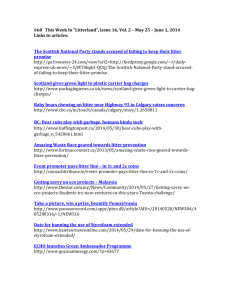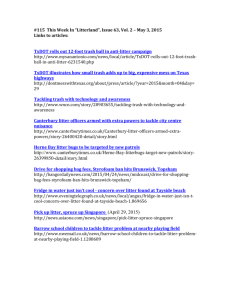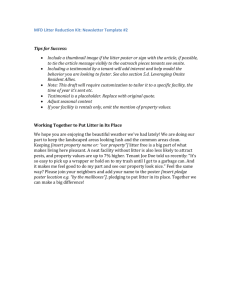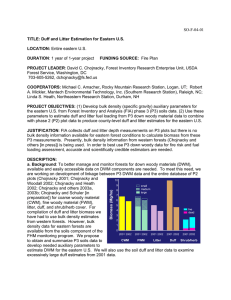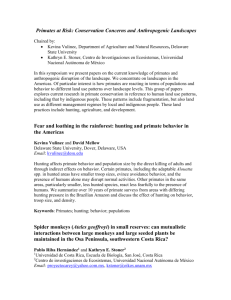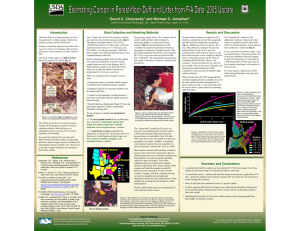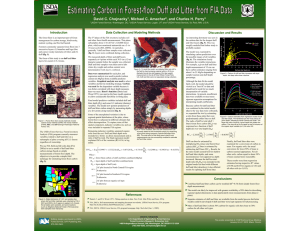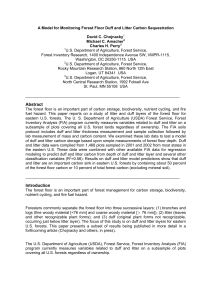Litter deposition in a fragmented area in the Brazilian Atlantic Forest
advertisement
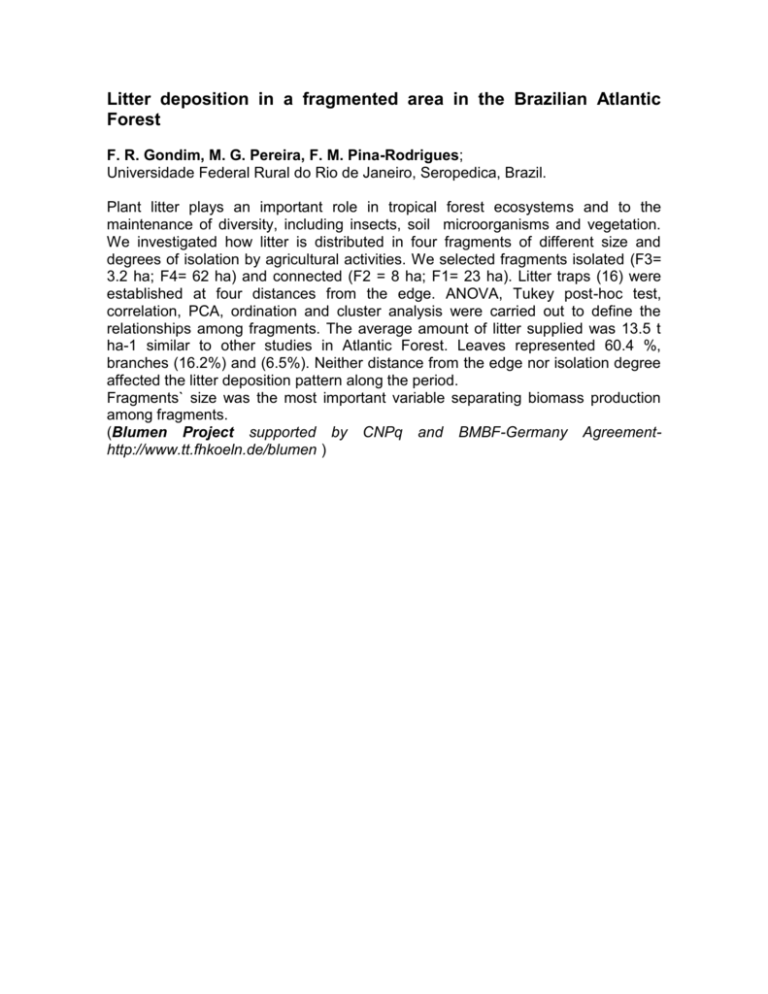
Litter deposition in a fragmented area in the Brazilian Atlantic Forest F. R. Gondim, M. G. Pereira, F. M. Pina-Rodrigues; Universidade Federal Rural do Rio de Janeiro, Seropedica, Brazil. Plant litter plays an important role in tropical forest ecosystems and to the maintenance of diversity, including insects, soil microorganisms and vegetation. We investigated how litter is distributed in four fragments of different size and degrees of isolation by agricultural activities. We selected fragments isolated (F3= 3.2 ha; F4= 62 ha) and connected (F2 = 8 ha; F1= 23 ha). Litter traps (16) were established at four distances from the edge. ANOVA, Tukey post-hoc test, correlation, PCA, ordination and cluster analysis were carried out to define the relationships among fragments. The average amount of litter supplied was 13.5 t ha-1 similar to other studies in Atlantic Forest. Leaves represented 60.4 %, branches (16.2%) and (6.5%). Neither distance from the edge nor isolation degree affected the litter deposition pattern along the period. Fragments` size was the most important variable separating biomass production among fragments. (Blumen Project supported by CNPq and BMBF-Germany Agreementhttp://www.tt.fhkoeln.de/blumen )
